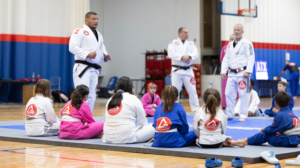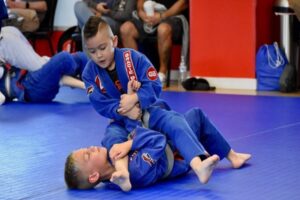Preventing Bullying Through Jiu-Jitsu for Children.
Introduction:
Jiu-Jitsu, a martial art known for its emphasis on technique and self-defense, plays a crucial role in preventing bullying among children. This article explores how the practice of Jiu-Jitsu empowers children, fostering confidence and respect, and consequently contributing to the prevention of bullying.
1. Self-Defense Competence:
- Jiu-Jitsu equips children with practical self-defense skills, boosting their confidence to handle potential bullying situations effectively.

2. Confidence Deterrence:
- Children who practice Jiu-Jitsu regularly develop a heightened sense of confidence. This confidence becomes a deterrent, making them less likely targets for bullying.

3. Respecting Differences:
- Jiu-Jitsu fosters an environment where respect for differences is paramount. Children learn to appreciate diversity, reducing the likelihood of engaging in or being targeted by bullying behaviors.

4. Communication Skills:
- Through Jiu-Jitsu, children enhance their communication skills, learning how to express themselves assertively without resorting to aggression. Effective communication is a powerful tool in preventing conflicts.

5. Bullying Awareness:
- Jiu-Jitsu programs often include anti-bullying education. Children are educated about the impacts of bullying, fostering empathy and a collective effort to create a supportive and respectful community.

In short:
Jiu-Jitsu serves as a powerful tool in preventing bullying among children by instilling self-defense competence, building confidence, promoting respect for differences, enhancing communication skills, and raising awareness about the negative effects of bullying. Through these means, Jiu-Jitsu empowers children to stand up against bullying and contribute to the creation of a more inclusive and respectful environment.



